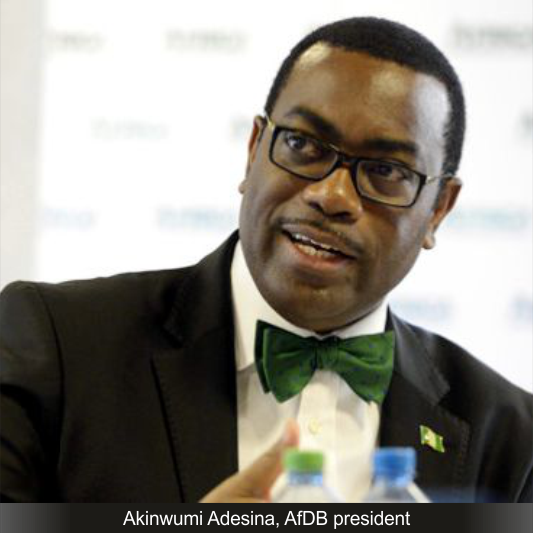The African Development Bank (AfDB) has developed a three-year project to meet the demands of its member countries for technical assistance to monitor revenues generated from the countries’ extractive industries.
The project, the first of its kind to be developed by the bank, is aimed at enhancing the abilities of the focal countries to improve domestic resource mobilisation from their extractive industrial sectors.
The continent’s development finance institution made this disclosure during a virtual inception workshop for the Financial Modelling Project in the Extractive Sector (FIMES) organised by its African Natural Resources Centre (ENRC) in Abidjan, Cote d’Ivoire.
The project report indicated that FIMES would be implemented in select transitional countries, namely Guinea, Liberia, Mali, Madagascar, Niger, Sierra Leone, South Sudan and Zimbabwe from 2020 to 2022.
.
Presenting the FIMES project background information during the virtual chat, the bank’s Division Manager, Policy Analysis, (ENRC), Mrs Vanessa Ushie, projected that the initiative would help to bolster overall economic resilience of the continent.
In addition, she explained that the project would build the capacity of government institutions to elaborate and use financial modelling of extractive projects to inform strategy setting and negotiate contracts and concessions.
The Division Manager further clarified: “20 government officials in each beneficiary member country will participate in the training, learning and knowledge activities as national beneficiaries, that is, 180 officials in the eight countries.
“Set criteria for selection of beneficiaries in the national cohort include relevance to primary job function on extractive revenue management, knowledge of extractive sector fiscal issues’ potential multiplier effects (trainer-of-trainers approach) and IT proficiency.
“The project commits to at least 40 per cent of beneficiaries in the eight countries to be women. National Focal Point (NFP) main coordinating actor in each beneficiary country must be nominated by the national government to play this role’’, the development finance banker added.
Ushie said the NFPs coordinated the national government’s engagement on the project, interface with the AfDB and other stakeholders and manage selection of project beneficiaries, adding that project components will focus on capacity building, peer learning and knowledge exchange, and FIMES’ Virtual Knowledge Hub.
In his comments, AfDB’s Director, Transitional States Coordination Office, Mr Yero Baldeh, said the project was “competitively selected from the 2019 proposals’’ with a view to building capacity for the financing model and by implication, strengthen domestic resource mobilisation, institutional capacity and resilience in the selected transition member countries.
He said: “The goal is to improve efficiency, sustainability and employer management practices in artisanal and small scale mining sector in the selected transition countries.
“Through this project, the bank is strengthening the human capacity of government regulatory agencies among others to facilitate formalisation of artisanal and small scale mining to generate employment and improve economic scales of several stakeholders, especially those along the artisanal and small scale mining value chain”, Baldeh added.
Similarly, the bank’s Director-General, West Africa Region, Mrs Marie-Laure Akin-Olugbade, explained said the project would help the capacity of member governments to use financial modelling for optimising revenues from their extractive industries
The DG said: “This is a priority of the bank and is part of the strategy of the bank in putting together policies to strengthen resource mobilisation, industrialisation and the development of infrastructure.’’






